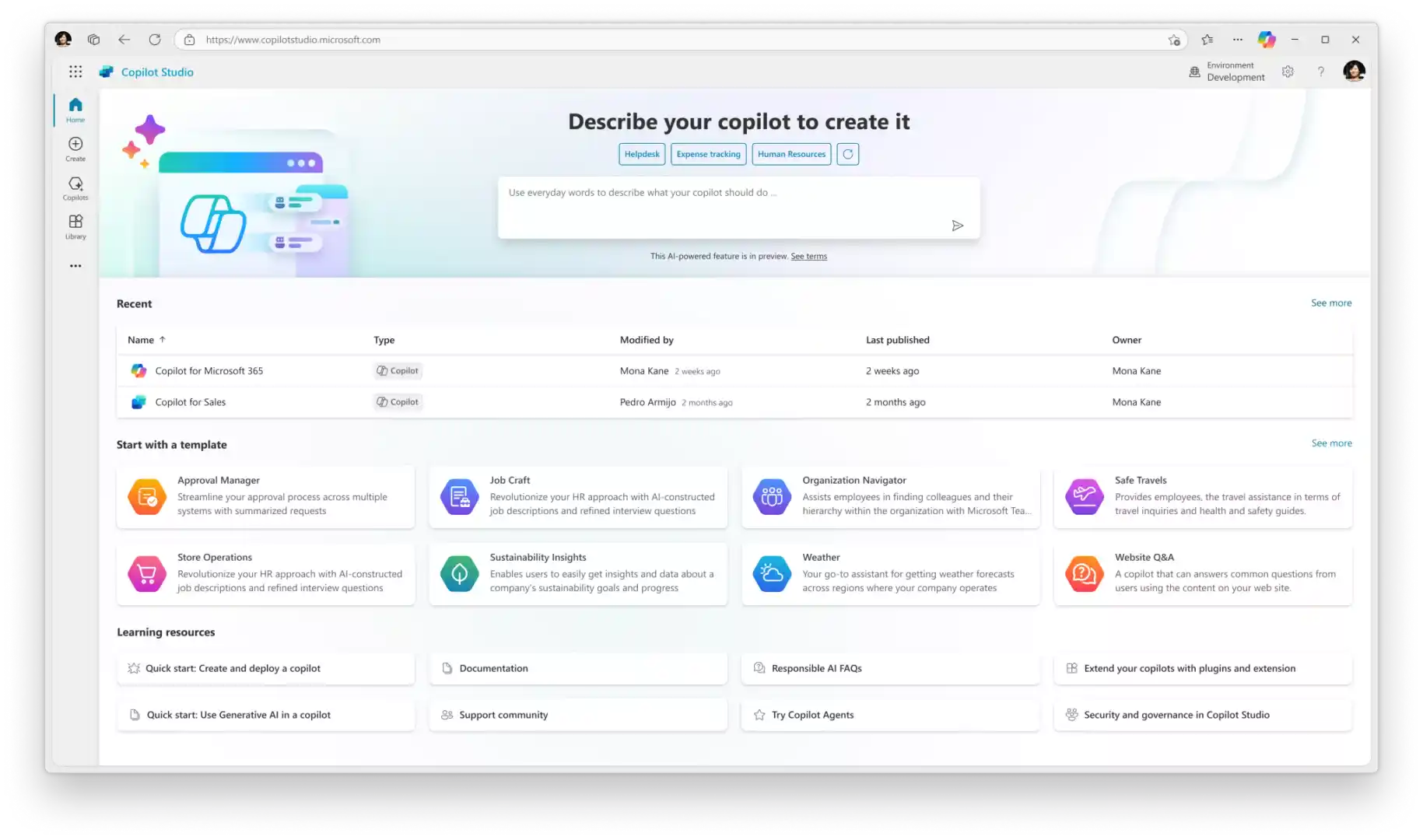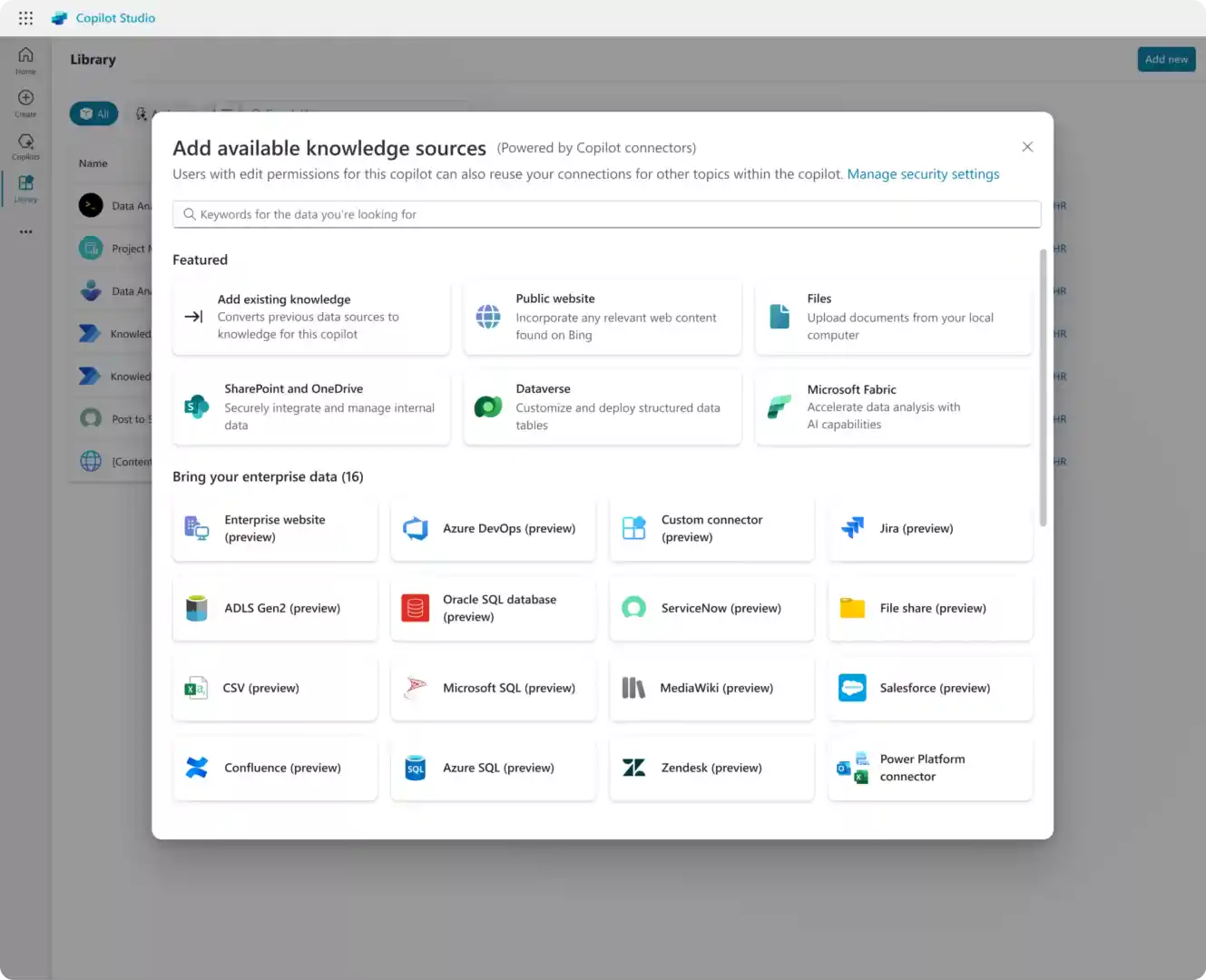Table of Contents
At this year’s Build conference, Microsoft emphasized generative AI, introducing significant updates to its platforms for developing generative AI-powered applications and experiences. These enhancements to Azure AI Studio and Copilot Studio highlight Microsoft’s commitment to advancing its AI app-building platforms. This article explores these updates and their implications for developers and businesses.
Azure Studio and Copilot Studio: AI App-Building Platforms
Azure AI Studio is part of Microsoft’s Azure OpenAI Service, enabling customers to combine advanced AI models, such as OpenAI’s GPT-4, with their data to create sophisticated applications. These applications can range from chat assistants to other types of apps that analyze and reason over the provided data.
Copilot Studio offers tools that connect Microsoft’s AI-powered Copilot, found in applications like Excel, Word, PowerPoint, Edge, and Windows, to third-party data. This integration enhances these applications’ functionality, making them more intuitive and responsive to user needs.

Key Updates to Azure AI Studio
General Availability and Model-as-a-Service
Azure AI Studio is now generally available, enabling developers to build generative AI-powered apps using pay-as-you-go inference APIs. This model-as-a-service approach provides access to and fine-tuning of generative AI models hosted on Azure infrastructure.
Training, Debugging, and Monitoring Capabilities
New capabilities in Azure AI Studio, currently in preview, allow customers to train and debug their generative AI-powered apps by comparing different versions. Additionally, developers can monitor apps in production for usage and quality, visualizing trends and receiving alerts based on custom filters and settings.
Integration with Microsoft Purview
Azure AI Studio now integrates with Microsoft Purview, also in preview. This service helps prevent unauthorized data access across apps and services, identifying potential data risks in AI applications. It also enforces encryption on sensitive data and governs AI app-building platform usage, ensuring data security and compliance.
Enhancing Model Security
To address security concerns, Azure AI Studio introduces new tools designed to prevent “jailbreaks” of AI models and detect hallucinations—instances where a model invents facts. These tools enhance the reliability and integrity of AI app-building platforms and applications built on the platform.

Innovations in Copilot Studio
Introduction of Copilot Agents
Microsoft is launching Copilot agents, described as AI app-building platform bots that can independently orchestrate tasks tailored to specific roles and functions. These agents leverage memory and contextual knowledge to navigate various business workflows, learning from user feedback and seeking help when encountering unknown situations.
Extensions and Connectors for Customization
New extensions and connectors are now available in preview for Copilot for Microsoft 365 and Microsoft Teams. Extensions allow developers to customize AI-powered copilots with specific instructions, database knowledge, and actions from plugins. For example, these extensions can build copilots for tasks like expense reporting and employee onboarding.
Connectors, meanwhile, enable developers to “ground” a copilot with organizational knowledge from various sources. This includes Power Platform connectors, Microsoft Graph connectors, and Power Query connectors, with Microsoft Fabric integrations coming soon. These connectors allow copilots to utilize data from public websites, SharePoint, OneDrive, Dataverse tables, Microsoft Fabric OneLake, and Microsoft Graph, as well as leading third-party applications.
Conclusion
Microsoft’s enhancements to Azure AI Studio and Copilot Studio at the Build conference underscore the company’s dedication to advancing its AI app-building platforms. These updates offer developers more powerful tools and resources to create sophisticated, secure, and efficient AI-driven applications. As these platforms continue to evolve, they promise to drive innovation and productivity across various industries, setting new standards for what can be achieved with AI technology.